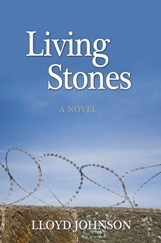The poet Robert Browning liked the month of April: “Oh, to be in England now that April ’s there . . .” James Russell Lowell suggested June: “And what is so rare as a day in June? Then, if ever, come perfect days . . .”
Personally, I love the tawny colors and chilly nights of October. It’s the birthday month for three members of my family. It’s also, this year, our 23rd wedding anniversary.
We fell in love in Saudi Arabia. I worked at the U.S. consulate in Jeddah, and Ben was a flight training manager for Saudi Arabian Airlines, headquartered in Jeddah. We met at a square dance, held on one of the foreign worker compounds.
Our dates included square dances, hikes in the dessert, and shopping trips to the suq market. We sang Christmas carol in an expatriate home. Dating in a country which forbade an unmarried man and woman being together—anywhere— had its challenges. Some of those provided fodder for my novel, Singing in Babylon.
But when we decided to marry, no official Christian church existed in Saudi Arabia where we could plight our troth. (Contrary to popular myth, U.S. embassies and consulates are not authorized to perform marriages.)
So we flew to neighboring Bahrain, where Christian churches were allowed. The minister, an Egyptian Christian, performed our ceremony in the church, begun as a mission in the late 1800’s.
It seemed fitting for our international life.



 In my novel Singing in Babylon, the female protagonist, Kate, moves to Saudi Arabia from her native Tennessee to teach. She travels for her first time outside the United States. On a drive with her friend, Philip, an American journalist on assignment to the Middle East, she notices a veiled and gloved woman pushing a child on a swing in a public park. The woman glances at the unveiled Kate, and Kate wonders how the woman feels about this Western female’s intrusion into her world.
In my novel Singing in Babylon, the female protagonist, Kate, moves to Saudi Arabia from her native Tennessee to teach. She travels for her first time outside the United States. On a drive with her friend, Philip, an American journalist on assignment to the Middle East, she notices a veiled and gloved woman pushing a child on a swing in a public park. The woman glances at the unveiled Kate, and Kate wonders how the woman feels about this Western female’s intrusion into her world. Fast food restaurants, unveiled women, and automobiles bring unprecedented freedom and rapid change to a nation in one or two generations. These changes arrived in a country accustomed to centuries-old merchant towns, Bedouins herding camels and goats, and ancient tribes familiar with the customs of generations.
Fast food restaurants, unveiled women, and automobiles bring unprecedented freedom and rapid change to a nation in one or two generations. These changes arrived in a country accustomed to centuries-old merchant towns, Bedouins herding camels and goats, and ancient tribes familiar with the customs of generations.